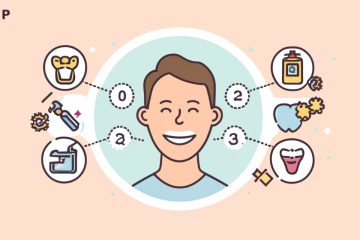Introduction
The COVID-19 pandemic disrupted nearly every aspect of life, from daily routines to work environments, but one of the most profound impacts was on mental health. With lockdowns, isolation, financial worries, and health concerns, mental health issues like anxiety, depression, and stress surged globally. In India, the rise in demand for mental health services was met by the emergence of online counselling India, which played a crucial role in providing timely support. This blog explores the mental health challenges brought by the pandemic and how online therapy in India helped individuals cope during unprecedented times.
The Mental Health Crisis Triggered by the Pandemic
The pandemic brought a series of mental health challenges for people worldwide. In India, the situation was exacerbated by a lack of access to in-person therapy and a rising need for mental health services. Several factors contributed to the mental health crisis:
- Social Isolation: Prolonged lockdowns and social distancing measures left many people feeling isolated and lonely, increasing the risk of depression.
- Anxiety and Uncertainty: The fear of contracting the virus, worries about loved ones, and uncertainty about the future led to heightened anxiety for many.
- Financial Stress: Job losses and economic instability added financial strain to an already stressful situation, impacting the mental well-being of countless families.
- Grief and Loss: Many people experienced the loss of loved ones during the pandemic, and the inability to hold traditional funerals or grieve collectively further compounded their emotional distress.
How Online Counselling in India Addressed These Challenges
When the pandemic restricted physical access to therapists, online counselling in India became a lifeline for many. Offering therapy through video calls, messaging, and phone calls, online platforms made mental health services accessible, affordable, and convenient.
1. Immediate Access to Mental Health Services
During the pandemic, timely access to mental health care became critical. Online therapy in India provided immediate support, allowing people to connect with professionals from their homes. Platforms like Practo, BetterHelp, and others emerged as vital resources for those in need.
2. Flexibility and Convenience
Online therapy removed the barriers of geography and travel, especially during lockdowns. People could schedule sessions based on their convenience, making it easier to fit mental health care into their disrupted daily routines.
3. Affordability
Many online platforms offered therapy at lower costs compared to traditional, in-person sessions. This affordability made mental health care accessible to a wider range of individuals, especially those facing financial difficulties during the pandemic.
4. Privacy and Comfort
Online therapy allowed individuals to seek help from the privacy of their own homes, which reduced the stigma often associated with mental health care. This level of comfort made it easier for many people to open up about their struggles.
Mental Health Issues Treated Through Online Therapy During the Pandemic
Online counselling India became instrumental in treating a wide range of mental health issues, many of which were exacerbated by the pandemic.
- Anxiety and Panic Disorders: The uncertainty and fear brought by the pandemic led to a spike in anxiety and panic disorders. Therapists used Cognitive Behavioral Therapy (CBT) and mindfulness techniques to help individuals manage these conditions online.
- Depression: Social isolation, loneliness, and grief caused many to experience depression. Online therapy helped individuals navigate their emotions and develop coping strategies.
- Grief and Loss: For those mourning loved ones, online psychologist consultation provided an outlet for expressing grief and learning how to cope with the absence of traditional support systems.
- Stress and Burnout: With work-from-home becoming the norm, many people struggled with work-life balance and burnout. Online therapy provided stress management techniques that helped individuals regain control of their mental well-being.
Success Stories of How Online Therapy Helped During the Pandemic
Numerous individuals in India benefitted from online therapy during the pandemic. Here are some examples:
- Case 1: A 35-year-old professional from Mumbai, dealing with stress and anxiety caused by job instability, sought help through online counselling India. The therapist guided her through relaxation techniques and CBT, which helped her manage her anxiety and focus on career resilience.
- Case 2: A college student struggling with loneliness and depression during the lockdown found relief through weekly online therapy sessions. These sessions helped her reframe her negative thoughts and develop coping strategies for isolation.
- Case 3: An elderly individual mourning the loss of his spouse during the pandemic found solace through grief counseling, which was conducted online. The therapy sessions helped him process his grief in a time of extreme social isolation.
The Role of Technology in Expanding Mental Health Services
Technology played a pivotal role in making mental health services widely accessible during the pandemic. Here’s how:
- Telemedicine Platforms: Platforms like Practo and Mfine expanded their mental health services, connecting individuals with therapists for both video and text-based therapy sessions.
- Mobile Apps for Mental Wellness: Apps like Headspace and Calm became popular for offering meditation, mindfulness, and stress-relief exercises, complementing the work done by online therapy in India.
- Video and Messaging Therapy: With flexible communication methods like video calls, phone calls, and messaging, people had multiple ways to engage with therapists based on their comfort levels.
FAQs
1. How did online counselling in India help during the pandemic?
Online counselling in India provided immediate mental health support during the pandemic, helping people manage stress, anxiety, depression, and grief. It allowed individuals to connect with therapists from the safety and comfort of their homes.
2. Is online therapy as effective as in-person therapy?
Yes, studies have shown that online therapy in India can be just as effective as in-person therapy for treating common mental health issues such as anxiety, depression, and stress.
3. Can I still access online counselling services post-pandemic?
Absolutely. Online therapy in India continues to be a popular option for many, offering flexibility and accessibility, especially for those who prefer virtual sessions over in-person visits.
4. What mental health issues did online therapy address during the pandemic?
Online therapy treated a wide range of issues, including anxiety, depression, grief, loneliness, and stress. Therapists used evidence-based approaches such as Cognitive Behavioral Therapy (CBT) and mindfulness techniques to help individuals cope.
5. Is online therapy more affordable than traditional therapy?
In many cases, yes. Online counselling in India is often more affordable than in-person therapy, making it a more accessible option for individuals, particularly during financial hardship caused by the pandemic.
Conclusion
The pandemic highlighted the importance of mental health and the need for accessible, flexible mental health services. Online counselling in India not only filled the gap left by restricted in-person services but also became a long-term solution for many seeking therapy. With affordable options, immediate access, and the convenience of therapy from home, online therapy in India has proven to be a transformative tool in addressing the mental health crisis. As the world continues to recover, online therapy remains a vital option for anyone needing mental health support.
Also Read: How to Take an Online ADHD Test Effectively



